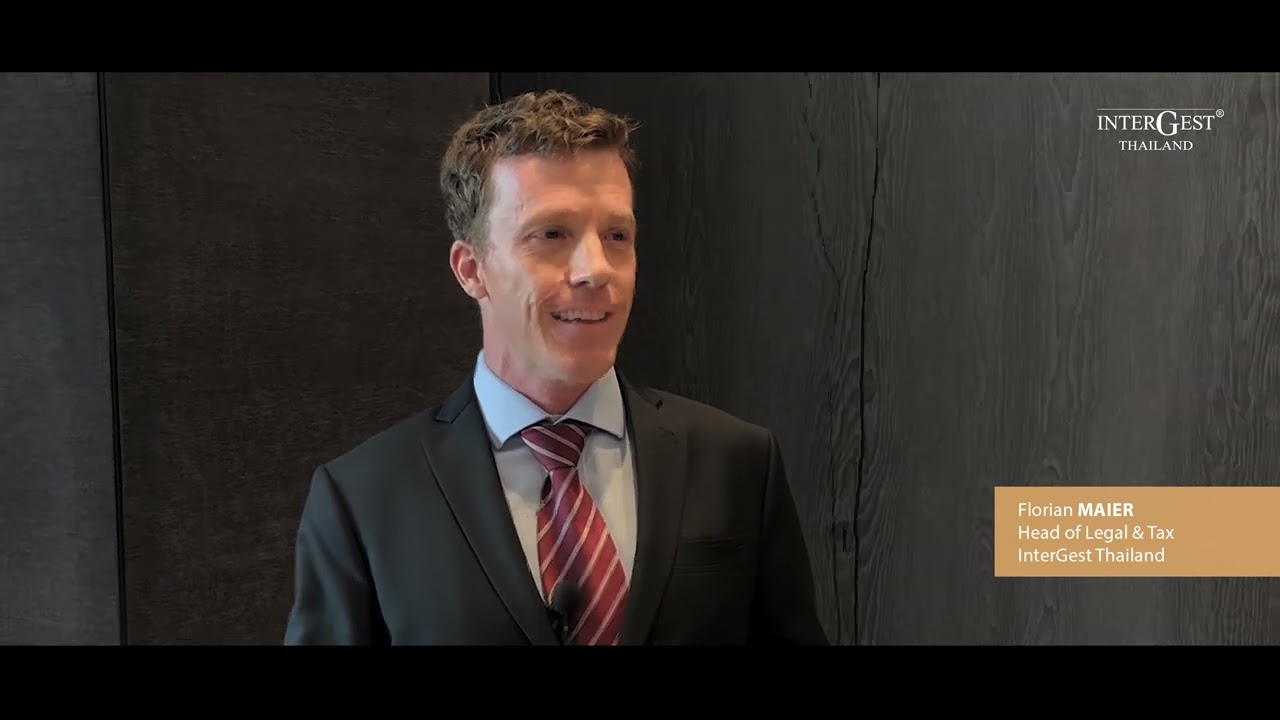
THE ART OF BEING LOCAL
IN THAILAND
Company formation in Thailand
Setting up a company in Thailand is an attractive option for foreign investors. The country has a stable political environment, a growing economy and a well-developed infrastructure.
In order to successfully establish a company in Thailand, opportunities and specifics of the Thai market need to be considered. First of all, foreign investors should choose a suitable corporate form for their company. There are several options available in Thailand, including the Limited Company (Ltd.), the Public Limited Company (PLC), the Partnership and the Branch Office. Each form of company has advantages and disadvantages. Therefore, it is important to carefully inform yourself about the respective regulations and conditions.
Investors should ensure that their company complies with Thai registration requirements. These include registering the company with the Commercial Registry Office, obtaining a tax number and VAT registration, and applying for a work permit for foreign employees.
An important consideration when setting up a company in Thailand is financing. Investors should ensure that they have sufficient funds to cover the costs of running the company. It makes sense to find out about financing and credit options.
Professional advice on entering the Thai market will ensure that all administrative requirements are met and risks minimised. InterGest Thailand was founded in 2007 to assist foreign companies in planning and realising a business base in Thailand. We are your competent contact for the Thai market.
Florian Maier, LL.M. is an attorney-at-law licensed in Germany and has studied at the Universities of Konstanz (Germany) and Auckland (New Zealand). He has been advising foreign companies in Thailand for over 10 years and leads the Legal & Tax department at InterGest Thailand since 2014. This includes, for example, business promotion options via the Thai Board of Investment, 100% foreign-owned company structures as well as joint ventures, mergers & acquisitions.
Daniel Walentowski studied Finance and Controlling at the RheinMain University of Applied Sciences. He has gained professional experience in the finance field, working for both German Mittelstand companies and stock listed multinationals. He has also worked in various countries abroad. Since 2015, he has been the head of Accounting & Administration at InterGest Thailand.
WHY SHOULD
COMPANIES
INVEST IN
Thailand?
Follow our series
Advantages of setting up a company in Thailand
- Stable political and economic environment: Thailand has a growing economy that offers promising business opportunities for foreign investors.
- Strategic location: Thailand is located in the middle of Southeast Asia and is an important transport hub in the region. Setting up a company in Thailand is also the basis for expanding into the Asian market.
- Attractive investment incentives: The Thai government offers tax breaks, subsidies and support programmes to attract foreign investors.
- Low operating costs: Fixed costs in Thailand are relatively low compared to other countries in the region, which enables foreign investors to conduct their business activities in a cost-efficient manner.
- Good infrastructure: Thailand has invested in modern airports, ports, road and rail networks that make it easier for foreign investors to conduct their business activities effectively.
Overall, setting up a company in Thailand offers foreign investors an attractive opportunity to enter the Asian market and benefit from the advantages the country has to offer. However, investors should plan carefully and carefully examine the legal requirements and business conditions in Thailand in order to be successful.
InterGest Thailand accompanies export-oriented companies and supports them with services in the establishment, conception and administration of the company's foreign branch. An initial consultation is always free of charge and without obligation. The aim is to learn more about your plans in Thailand.
Challenges of setting up a company
Setting up a company in Thailand can present challenges for foreign investors, such as:
- Complex legal system: Legally, Thailand is often complex for foreign investors. There are language barriers and differences in business practices and cultures that can make it difficult to establish a company in Thailand.
- Bureaucracy: There are bureaucratic hurdles in Thailand. It is sometimes a challenge to get the right permits and certificates and to meet all the legal requirements.
- Language barriers: Thai is the official language in Thailand and not all business partners or authorities speak English or other foreign languages. This can cause communication problems and delays.
- Corruption: Although the Thai government has taken measures to fight corruption, the problem still exists in some areas.
- Labour shortage: Thailand does not have access to a well-trained workforce in all business sectors.
- Competition: Thailand is an emerging business location and there are a lot of competitors in the market. It is therefore a challenge to prevail against established companies and competitors.
So challenges still exist that foreign investors have to face when setting up a company in Thailand. It is important to prepare well, conduct comprehensive due diligence and seek professional support from experts in the Thai market to be successful.
InterGest Thailand is based in Bangkok, the vibrant capital and economic and financial centre of Thailand. We understand the challenges of the Thai economy and can help you take the right steps in setting up your business.
Company forms in Thailand
In Thailand, there are various company forms that investors can choose to establish a company:
- Limited Company (Ltd.): This is the most common form of company in Thailand and is often chosen by foreign investors. It requires at least three founding members and a minimum capital of 2 million THB (approx. 50,000 euros). The liability of the shareholders is limited to the amount of their respective equity.
- Public Limited Company (PLC): It is a form of company suitable for larger companies that intend to sell shares to the public. It requires at least 15 founding members and a minimum capital of 5 million THB (approx. 125,000 euros). Here, too, the liability of the shareholders is limited to the amount of their respective equity.
- Branch Office: A foreign company can also open a branch office in Thailand. However, this is not registered as a separate legal entity and the foreign company is liable for the actions of the branch office.
- Representative Office: This form of company is similar to a branch office, but it usually has no power to act. It is mainly used for contacting customers and suppliers in Thailand and for market research.
- Partnership: It is composed of at least two persons who jointly establish and operate a company. The partners are personally liable for the debts and obligations of the company.
It is important to note that each company form has its own rules and conditions. Therefore, it is important to inform yourself carefully and seek professional advice before deciding on a company form. InterGest Thailand helps you with the establishment of your foreign branch - from the daily execution of fiduciary administrative work to reporting and controlling.
Taxes and accounting in Thailand
The Thai tax system is generally attractive to foreign investors and offers some advantages:
- Corporate tax: It is currently 20 % on net profits. However, there is also a reduction in corporate tax for small and medium-sized enterprises that have their headquarters in Thailand.
- Staff income tax: Thailand has a progressive graduated tax system for staff income. This means that the higher an employee's income, the higher the tax rate. The maximum rate is currently 35%.
- VAT: It is 7% on all goods and services that are not exempt from VAT.
- Double taxation agreement: Thailand has concluded a double taxation agreement with Germany. This ensures that companies are not taxed in both countries.
The Thai tax system is comparatively simple and transparent. Foreign investors should take care to comply with all tax regulations when setting up a company in Thailand and seek professional assistance from a tax expert to minimise potential risks.
It is also important to note that foreign investors in Thailand are generally subject to the same tax obligations as Thai companies. This also applies to business registration and tax filing. However, the Thai government offers various tax concessions and incentives to encourage foreign investors to invest and establish a company in Thailand. Examples include special tax incentives for investing in certain regions or industries.
InterGest Thailand's specialists can advise you on everything from payroll to business process outsourcing and accounting to ongoing tax and legal advice.
Company formation with InterGest
In summary, setting up a company in Thailand is a promising option for foreign investors, but it requires careful planning and preparation to be successful. By choosing the right business structure, meeting registration requirements, securing sufficient financing and based on competent advice, investors can build a successful and profitable business in Thailand. Contact us. We support you in conquering the Thai market with the following services:
Company formation and administration
Bookkeeping and accounting
Import/export and administrative work
Business accounting and MIS design
Controlling
Cross-border and consolidated reporting
Cash and credit management
Staff recruitment and management
Payroll accounting
Legal and tax advice
VAT management
Statistical Goods Declaration / Intrastat
Invoicing
Dunning and collection
Support in the development of sales
Order processing








